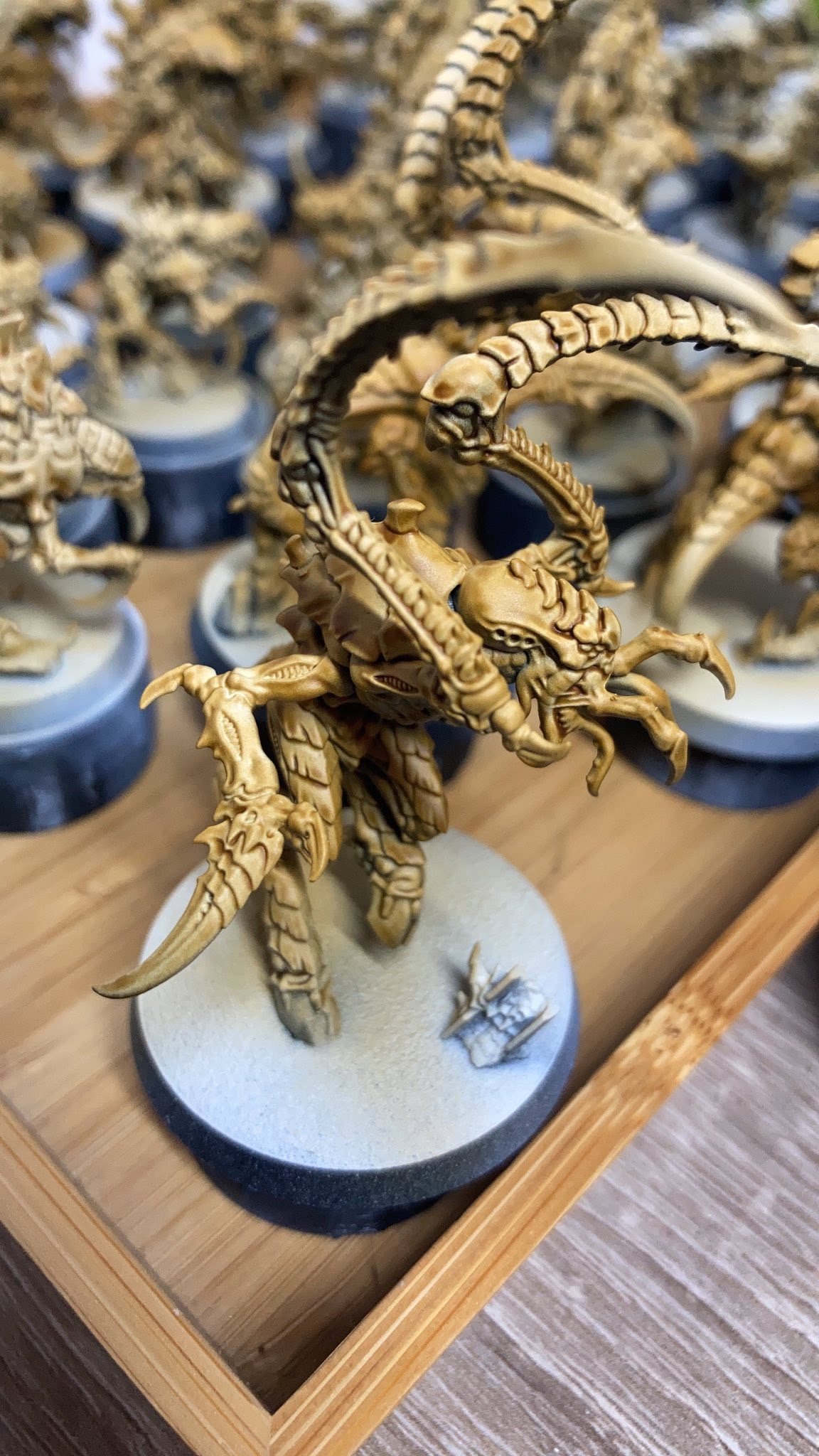this post was submitted on 01 Jul 2023
102 points (99.0% liked)
Warhammer 40k
3818 readers
29 users here now
A community dedicated to the universe of Warhammer 40k, a tabletop setting in the far, distant future.
This is a general community for 40k miniatures, art, lore discussion, and gameplay discussion.
Rules
- Keep it civil.
- No memeposts/shitposts. Memes are great but direct them to grimdank.
- Please mark any posts containing realistic nudity or realistic excessive gore/violence as NSFW; this rule mainly applies to cosplay and realistic drawings rather than miniatures. Being that 40k is inherently violent, this is a judgement call, and mods may occasionally request posters add tags.
- No political or social cause agenda pushing.
Helpful Links
- 10th Edition Rules
- iOS Warhammer 40k App
- Android Warhammer 40k App
- 3rd party site for running Kill Team games
Related 40K Communities:
!imaginarywarhammer@lemmy.world
Other tabletop hobby communities:
founded 1 year ago
MODERATORS
you are viewing a single comment's thread
view the rest of the comments
view the rest of the comments

I have started painting my test tyranids from Leviathan and I'm going with a similar scheme, at least for the skin portion. Do you get much from the zenithal priming that the contrast doesn't do already or is it to double down on the contrast effect?
On a recent project, I simply primed white, and some hard to reach parts of the model remained white, which I really disliked, because I spent a lot of time teaching these unpainted parts.
Zenithal makes the model white, while still leaving the hard to reach parts black, which registers to the eye as shadow and gives, in my opinion, a better result with less efforts. Contrast also makes the transition between white and black (light and shadow) really smooth and natural, even on brighter colours.